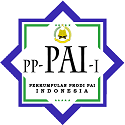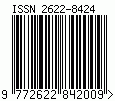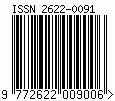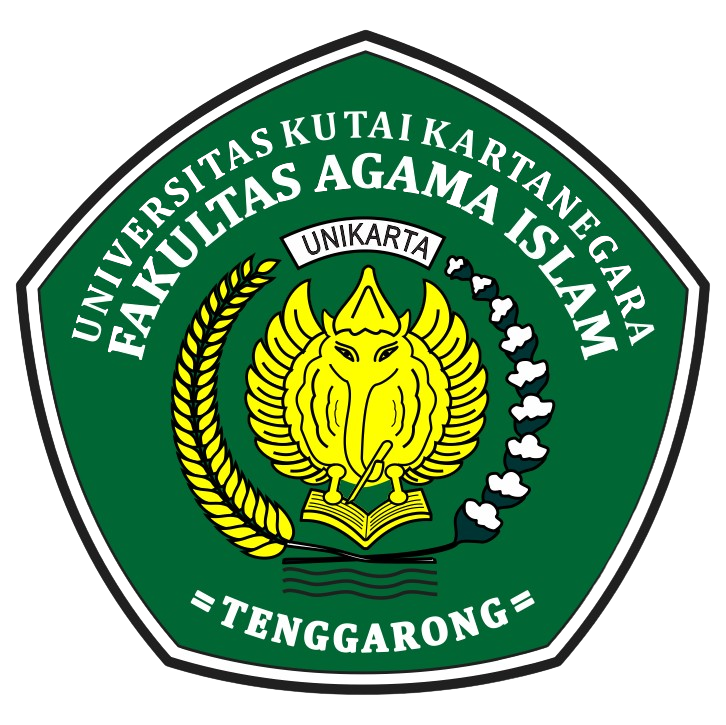2013 Curriculum and the Relevance of HOTS Learning in Schools; (Education Theoretical Review of XXI Century Learning)
DOI:
https://doi.org/10.53640/azkiya.v2i2.913Keywords:
XXI Century Education, Curriculum 2013, HOTS LearningAbstract
XXI Century Education experienced a paradigm change because it was influenced by the response of the world of education to the Industrial Revolution 4.0. On the other hand, the Industrial Revolution 4.0 helped encourage the birth of the Educational 4.0 era which was perceived by many parties as an era of the use of digital technology in the learning process, or known as the cyber system) which was able to make the learning process continuously without limit of space and time. The Indonesian government's policy to implement the 2013 curriculum (K-13) in learning is the answer to various expectations for various skills that must be possessed by learners in the XXI century. Learning is termed with 4C (Communication, Collaboration, Critical Thinking and Problem Solving, Creativity and Innovation) which is the real ability to go to the K-13 learning. This goal is certainly only able to be realized if the learning is done at school using high-level thinking skills (Higher Order Thingking Skills/HOTS) which is defined as the wider use of thoughts to find new challenges.
References
Anderson, L. W., & Krathwohl, D. R. Kerangka Landasan untuk Pembelajaran, Pengajaran, dan Asesmen. Pustaka Pelajar, 2010
Badan Standar Nasional Pendidikan. Laporan BSNP Tahun 2010. BSNP, 2010
Basuki, I., & Hariyanto. Asesmen Pembelajaran. Remaja Rosdakarya Offset, 2016
Binus University. Perbedaan Generasi X,Y, dan Z. Binus University. http://parent.binus.ac.id/2018/11/perbedaan-generasi-xy-dan-z/, 2018
Danim, S. Menjadi Peneliti Kualitatif: Ancangan Metodologi, Presentasi, dan Publikasi Hasil Penelitian untuk Mahasiswa dan Peneliti Pemula Bidang Ilmu-Ilmu Sosial, Pendidikan dan Humaniora. Pustaka Setia, 2002
Darmawan, J. Menjadi Guru Era Pendidikan 4.0. Serambinews.com. https://aceh.tribunnews.com/2018/11/27/menjadi-guru-era-pendidikan-40, 2019
Hamalik, O. Manajemen Pengembangan Kurikulum. PT. Remaja Rosdakarya, 2010
Heong, dkk., Y. M. The Level of Marzano Higher Order Thinking Skills Among Technical Education Students. International Journal of Social and Humanity, Vol. 1(No. 2), 121–125, 2011
Hussin, A. A. Education 4.0 Made Simple: Ideas For Teaching. IJELS: International Journal of Education and Literacy Studies, Vol. 6. www.ijels.aiac.org.au, 2018
Peraturan Menteri Pendidikan dan Kebudayaan Nomor 20 Tahun 2016 tentang Standar Kompetensi Lulusan Pendidikan Dasar dan Menengah, Pub. L. No. Nomor 20 Tahun 2016, 2016
Kementerian Pendidikan dan Kebudayaan Republik Indonesia. Buku Pegangan Pembelajaran Berorientasi pada Keterampilan Berpikir Tingkat Tinggi: Program Peningkatan Kompetensi Pembelajaran Berbasis Zonasi. Direktorat Jenderal Guru dan Tenaga Kependidikan, 2018
Kunandar. (2007). Guru Profesional: Implementasi Kurikulum Tingkat Satuan Pendidikan (KTSP) dan Persiapan Menghadapi Sertifikasi Guru. PT. Rajagrafindo Persada.
Kuswana, W. S. Taksonomi Berpikir. Remaja Rosdakarya, 2013
Moeljadi, dkk., D. KBBI V (Versi 0.2.1 Beta (21)) [Computer software]. Badan Pengembangan dan Pembinaan Bahasa Kementerian Pendidikan dan Kebudayaan Republik Indonesia, 2016
Moleong, L. J. Metodologi Penelitian Kualitatif (Cet. 13). Remaja Rosdakarya, 2001
Muhadjir, N. Metodologi Penelitian Kualitatif, Edisi IV (Cet. 1). Rake Sarasin, 2000
Mulyasa, E. Kurikulum Berbasis Kompetensi: Konsep, Karakteristik, Implementasi, dan Inovasi. PT Remaja Rosdakarya, 2003
Mulyasa, E. Kurikulum Tingkat Satuan Pendidikan (KTSP): Sebuah Panduan Praktis (Mukhlis, Ed.). Remaja Rosdakarya, 2007
Mulyasa, E. Pengembangan dan Implementasi Kurikulum 2013. PT. Remaja Rosdakarya, 2013
Muzamiroh, M. L. Kupas Tuntas Kurikulum 2013: Kelebihan dan Kekurangan Kurikulum 2013. Kata Pena, 2013
Poerwati, L. E., & Amri, S. (). Panduan Memahami Kurikulum 2013. Prestasi Pustaka, 2013
Puncreobutr, V. Education 4.0: New Challenge of Learning. St. Theresa Journal of Humanities and Social Sciences, Vol. 2, 2016
Rusyana, A. Keterampilan Berpikir: Pedoman Praktis Para Peneliti Keterampilan Berpikir. Penerbit Ombak, 2014
Sagala, S. Konsep dan Makna Pembelajaran. Alfabeta, 2011
Sanjaya, W. Pembelajaran dalam Implementasi Kurikulum Berbasis Kompetensi. PT. Kencana, 2006
Sanjaya, W. Strategi Pembelajaran Berorientasi Standar Proses Pendidikan. Prenada Media Group, 2008
Schwab, K. The Fourth Industrial Revolution. World Economic Forum, 2016
Sugianto, T. Mengenal Konsep 4C dalam Pembelajaran Kurikulum 2013. Toz Sugianto. www.tozsugianto.com/2018/04/mengenal-konsep-4c-dalam-pembelajaran-kurikulum-2013.html, 2018
Suyono, & Hariyanto. Belajar dan Pembelajaran: Teori dan Konsep. Remaja Rosdakarya Offset, 2014
Syamsuri, A. S., & Ishaq. Guru, Generasi Z, dan Pembelajaran Abad 21. Universitas Muhammadiyah Makassar. http://www.unismuh.ac.id/artikel/2018/05/26/guru-generasi-z-dan-pembelajaran-abad-21/, 2018
Widyastono, H. Pengembangan Kurikulum di Era Otonomi Daerah: Dari Kurikulum 2004, 2006 ke Kurikulum 2013. Penerbit Bumi Aksara, 2014
Additional Files
Published
Issue
Section
License
Copyright (c) 2021 Mukmin Mukmin, Isna Radiyah, Budi Yusuf

This work is licensed under a Creative Commons Attribution 4.0 International License.











